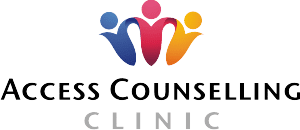Studies have shown that counselling is effective in helping people with depression. In fact, it has been cited as a powerful tool not just in eliminating the symptoms but in overcoming the condition. Even in treatment-resistant cases, using counselling in conjunction with medications minimises depressive symptoms.
What Are the Benefits of Depression Counselling?
With the help of counselling, you can learn how to identify warning signs. This is going to enable you to recognise the onset of future episodes and consequently, prevent them from happening.
You are also going to be equipped with the skills needed to challenge your depressive thoughts. To be more precise, your counsellor is going to teach you how to change your mindset – how you think and feel about things or how to have a new perspective on the issues you are facing.
Undergoing counselling can also help you stick to your treatment plan and deal with the side effects of your medications. In addition, you are going to learn how to discuss your condition with other people.
Counselling Dublin – What’s the First Step?
Despite the benefits and encouraging statistics, there is still apprehension amongst some sufferers about seeing a counsellor. One reason for this is not knowing how to go about it, primarily what the first step is and what to do on the first visit.
If you are contemplating about getting depression counselling, the first step is to find a counsellor. You cannot just pick any therapist though. As it has been cited in several studies, the success of this type of treatment partly hinges on how good the counsellor is. Hence, it is crucial that you choose an experienced professional, one who specialises in handling cases like yours.
You can ask recommendations from family and friends. Alternatively, you can use search engines such as Google to find one. All you have to do is key in search terms like “depression counselling Dublin” to generate a list of clinics or counsellors.
Please note, however, that you should not choose a clinic or therapist just because it appears first on the list. You need to research further. Find out their specialisation, years of experience and reputation in the industry. As much as possible, take time to call their office so you can talk to them and get a feel if the counsellor is the right match for you.
What to Do on Your First Counselling Session
For most people, the first counselling session is always the hardest one. It can make you nervous and flustered. This is why it is important that you prepare before heading to the counsellor’s office.
The preparation entails arming yourself with information. Learn as much as you can about depression counselling. Furthermore, write down all the questions you have.
One of the important things you have to ask your counsellor is his/her approach. Know how each session is conducted and what you should do. More importantly, find out what his/her goals are for you in this treatment.
It also greatly helps if you are aware of the things which can harm your relationship with your counsellor. So, ask what his/her ‘hot buttons’ are – i.e., being tardy all the time, not showing up to sessions without cancelling, etc. At the same time, inform him/her about your ‘hot buttons’. Being aware of these things can help foster a better counsellor-patient relationship.
Moreover, it is imperative that you convey your thoughts, specifically what you want to get out of the counselling. What are your goals? What do you expect from the counsellor and the sessions?
Coming in prepared – armed with information and questions as well as the willingness to open up – can make your first session fruitful and worthwhile.
Depression is a treatable condition. If you are suffering from it, please know that help is available. There are counsellors who can help you overcome it.
Access Counselling has counsellors who are experienced in depression counselling. Call 01 5240708 now or send us an enquiry.
—
Image by Ryan McGuire from Pixabay



